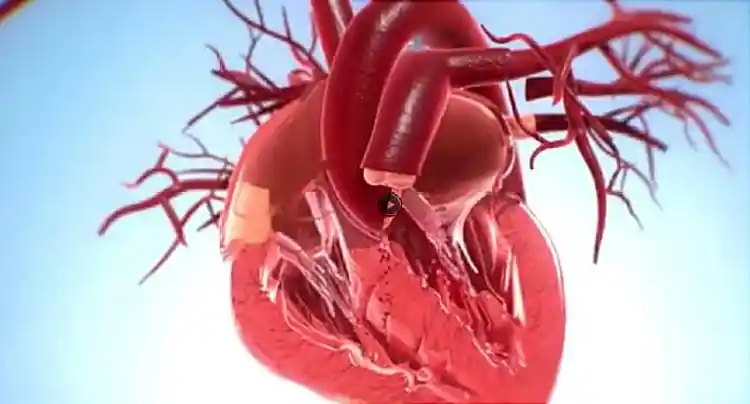Why Does Your Heart Valve Narrow?

Hide Video Transcript
Video Transcript
As your heart beats, it pumps blood from the left ventricle through the aortic valve and into the aorta, your body’s largest artery. The aortic valve is made up of three triangular flaps of tissue called cusps that open and close to keep blood flowing in only one direction . Sometimes, the aortic valve opening narrows – a serious condition called aortic stenosis . This narrowing obstructs blood flow from your heart into your aorta and out to the rest of your body. To pump enough blood to your body, your heart must work harder. Eventually, this can weaken the muscle and may lead to heart failure . Aortic stenosis is typically caused by the buildup of calcium deposits over time, and mostly affects older adults. As blood constantly flows over the aortic valve, calcium, a mineral found naturally in your blood, accumulates on the valve's cusps. Calcium deposits can build up sooner in people with abnormal aortic valves – such as having 2 cusps instead of 3 -- or as a result of chest radiation for cancer treatment . Another cause is rheumatic fever, which can cause scar tissue to form on the aortic valve. This scar tissue may narrow the aortic valve, but it can also create a rough surface where calcium deposits may collect more easily . Whatever the cause, aortic stenosis can be a serious condition. If you have severe aortic stenosis, you may need surgery to repair or replace the valve.
